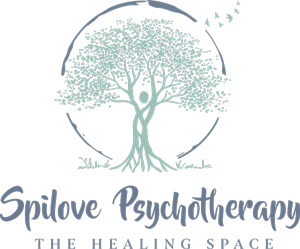Marriage is a beautiful journey, but it’s not without its challenges. Communication issues, conflicts, and life transitions can test even the strongest relationships. If you and your partner are facing struggles, marriage counseling can help you work through them. It provides a safe, supportive space where you can learn valuable skills like effective communication, conflict resolution, and trust rebuilding. Whether you’re navigating a tough time or want to strengthen your bond for the future, marriage counseling can help you create a healthier, more fulfilling relationship. Learn more about the benefits of counseling and how it can support you and your partner in navigating life’s challenges together.
How Past Trauma Shows Up in Relationships—And How Co-Facilitated Couples Therapy Can Help
Do you find yourself feeling anxious, guarded, or stuck in unhealthy patterns in your relationship? Past trauma can shape the way we connect with others, making it difficult to fully trust, communicate, or feel safe. In this blog, we explore how unresolved trauma impacts relationships and how co-facilitated couples therapy—with two therapists guiding the process—can help you and your partner break free from old cycles and build a stronger, more secure connection.
Click to read more and start your journey toward healing together.
What to Expect from Premarital Counseling in Bryn Mawr, PA
Planning a wedding is exciting, but have you thought about preparing for your marriage? Premarital counseling helps couples build a strong foundation, improve communication, and navigate challenges before they arise. Whether you're looking to deepen your connection or address important topics like finances, conflict resolution, and shared values, premarital counseling in Bryn Mawr, PA, can set you up for long-term success. Learn what to expect from the process and how our affordable counseling options can support you on this journey.
What Is Co-Facilitated Couples Therapy? A Unique Approach to Relationship Healing
Struggling with communication, trust, or past wounds in your relationship? Co-facilitated couples therapy offers a unique approach where two therapists work together to provide balanced support, deeper insights, and practical tools for lasting change. This collaborative method helps couples navigate conflict, heal from past trauma, and build a healthier, more secure connection.
Click to learn how co-facilitated therapy can transform your relationship.
Interweaving EMDR and Other Trauma Approaches
Trauma healing is a deeply personal journey, and combining powerful therapeutic modalities like EMDR, IFS, parts work, inner child work, and somatic therapy offers a holistic approach to recovery. In this blog, we explore how these therapies work together to help you heal from past wounds, restore balance within, and create lasting transformation. Learn more about this integrative approach and how it can support your healing journey.
What Are Attachment Styles, and How Do They Affect Relationships?
Curious about how attachment styles shape your relationships? Whether you're secure, anxious, avoidant, or somewhere in between, understanding your attachment style can help you build stronger connections. Learn how these patterns influence communication, intimacy, and conflict resolution—and discover ways to cultivate healthier relationships. Read more in our latest blog!
How Does Intensive Couples Therapy Work? A Complete Guide
Relationships can be both fulfilling and challenging. When issues like communication problems, trust breaches, or emotional distance arise, weekly therapy might not always provide the quick resolution or in-depth work needed. That's where intensive couples therapy comes in.
This approach offers immersive, extended sessions, sometimes over a few days, allowing couples to make significant progress in a shorter time. It’s designed for those looking to dive deeper into their challenges, addressing issues more effectively than traditional therapy.
In this guide, we’ll explore what intensive couples therapy entails, how it differs from regular therapy, and how to know if it’s the right option for you and your partner. Ready to learn more? Click to read the full guide.







